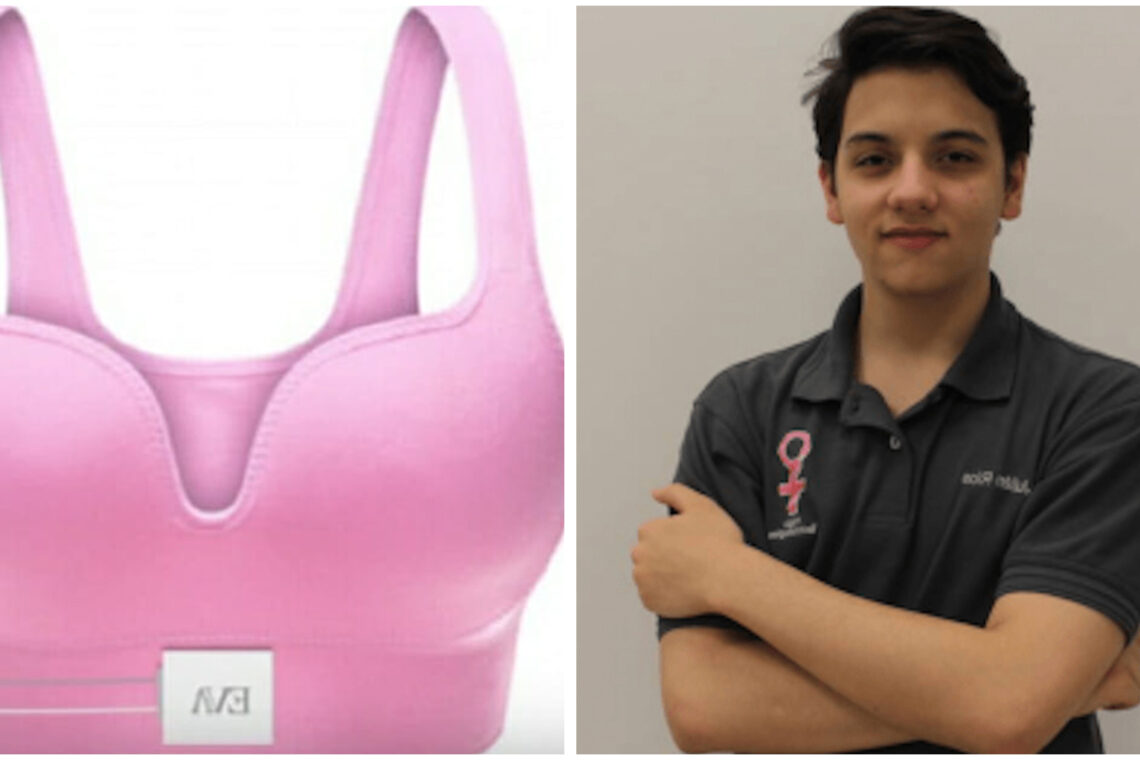
Facing the challenge of cancer, whether personally or through the experience of a loved one, is a profound and often devastating journey. The battle against this relentless disease has been ongoing for years, with countless individuals dedicating their lives to research and innovation in the hopes of eradicating its presence. Although we continue to strive toward a future where cancer is no longer a threat, significant challenges remain, especially in the quest for early detection and intervention.
A remarkable story emerges from the determination of one young innovator, Julian Rios Cantu, who turned his personal anguish into a powerful drive for change. At just 13, Julian experienced the emotional turmoil of his mother’s breast cancer diagnosis. While the initial news was difficult to process, the subsequent recurrence of her illness struck him even harder, igniting a fierce desire to make a difference. Witnessing his mother’s struggles in her fight against cancer instilled in him a sense of urgency to create solutions that could potentially spare others from similar pain.

In partnership with three friends, Julian launched Higia Technologies, a venture aimed at revolutionizing the early detection of breast cancer. Their flagship creation, an innovative “auto exploration” bra, is equipped with over 200 sensors, meticulously designed to monitor subtle changes in breast tissue. This groundbreaking device represents a fusion of technology and healthcare, targeting the critical early stages of cancer when treatment options are most effective.
The importance of early detection in breast cancer cannot be overstated. Research shows that catching the disease at its nascent stages can drastically improve survival rates. Julian’s inspiration comes from the real-life challenges faced by his mother, who endured a double mastectomy but ultimately emerged as a survivor. Her resilience and fight against cancer propelled Julian and his team to develop a solution that empowers women to take charge of their health.

The auto exploration bra functions by being worn for just 60 to 90 minutes each week. During this time, the sensors detect variations in temperature, color, and texture, all of which can indicate changes in breast health. Tumors can disrupt blood flow, and this device is designed to pick up on those critical alterations. The data collected is then sent to a connected app, allowing users to receive timely alerts from their healthcare providers. This proactive approach aims to catch potential issues before they progress to a stage that could become difficult to treat.
The impact of such technology could be transformative. While it may not be labeled as a miraculous invention, the efforts of Julian and his team are undoubtedly commendable. Their commitment to creating a practical solution reflects a growing trend of utilizing technology to address pressing health concerns. It showcases how young minds, driven by personal experiences, can spearhead initiatives that hold the potential to change lives.
Recognition for Julian’s work came in the form of a $20,000 grant from the Global Student Entrepreneur Awards, further validating the significance of their project. This funding will enable Higia Technologies to continue its development and refine its innovative approach to breast cancer detection.
In conclusion, the journey of Julian Rios Cantu and his team is a testament to the power of resilience, creativity, and determination. Their innovative approach to breast cancer detection not only represents a hopeful advancement in medical technology but also serves as an inspiring reminder of the positive impact that young entrepreneurs can have in the fight against cancer. As they continue their mission, the hope is that their invention will empower women to take proactive steps in safeguarding their health, ultimately leading to a future where fewer individuals have to endure the anguish of cancer diagnosis and treatment.